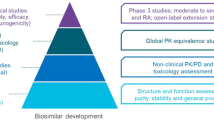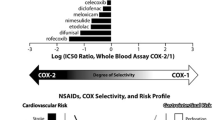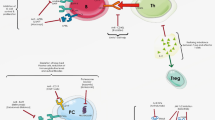Abstract
The global burden of inflammatory bowel diseases (IBD) is estimated at 4.9 million and the global prevalence exceeds 0.3%. Multiple newer therapeutic agents have broadened the options for the therapy of IBD in the last three decades. Thiopurines, however, have retained their place as maintenance therapy in IBD, especially in resource-constrained setting. But thiopurines have narrow therapeutic range, often needing discontinuation due to side effects or lack of efficacy. Biologic agents revolutionized the treatment of IBD, but the efficacy is lost in 50% of patient after one year. These outcomes are often due to inadequate drug concentrations that may lead to the development of antibodies as well as pharmacodynamic failure. Therapeutic drug monitoring (TDM) was proposed to reduce loss of response and to optimize the therapy in patients on thiopurine and biologic therapy. TDM is based on exposure-response relationship, suggesting a positive correlation between elevated serum anti-TNF concentrations and favorable therapeutic outcomes. TDM has multiple facets. This article discusses the benefits, evidence and limitations of TDM. The practical use of TDM in clinical practice is highlighted. Newer developments in the field and their relevance in practice are discussed.

Similar content being viewed by others
Data availability
Not applicable.
References
Vos T, Lim SS, Abbafati C, et al. Global burden of 369 diseases and injuries in 204 countries and territories, 1990–2019: a systematic analysis for the Global Burden of Disease Study 2019. Lancet. 2020;396:1204–22.
Ng SC, Shi HY, Hamidi N, et al. Worldwide incidence and prevalence of inflammatory bowel disease in the 21st century: a systematic review of population-based studies. Lancet. 2017;390:2769–78.
Wang R, Li Z, Liu S, Zhang D. Global, regional and national burden of inflammatory bowel disease in 204 countries and territories from 1990 to 2019: a systematic analysis based on the Global Burden of Disease Study 2019. BMJ Open. 2023;13:e065186.
Jharap B, Seinen ML, de Boer NKH, et al. Thiopurine therapy in inflammatory bowel disease patients: analyses of two 8-year intercept cohorts: Inflamm. Bowel Dis. 2010;16:1541–9.
Feuerstein JD, Isaacs KL, Schneider Y, et al. AGA clinical practice guidelines on the management of moderate to severe ulcerative colitis. Gastroenterology. 2020;158:1450–61.
Torres J, Bonovas S, Doherty G, et al. ECCO guidelines on therapeutics in Crohn’s disease: medical treatment. J Crohns Colitis. 2020;14:4–22.
Kopylov U, Amre D, Theoret Y, Deslandres C, Seidman EG. Thiopurine metabolite ratios for monitoring therapy in pediatric Crohn disease. J Pediatr Gastroenterol Nutr. 2014;59:511–5.
Roda G, Jharap B, Neeraj N, Colombel JF. Loss of response to anti-tNFs: definition, epidemiology, and management. Clin Transl Gastroenterol. 2016;7:e135.
Ding NS, Hart A, De Cruz P. Systematic review: predicting and optimising response to anti-TNF therapy in Crohn’s disease - algorithm for practical management. Aliment Pharmacol Ther. 2016;43:30–51.
Kang JS, Lee MH. Overview of therapeutic drug monitoring. Korean J Intern Med. 2009;24:1–10.
Spencer EA, Dubinsky MC. Therapeutic drug monitoring in inflammatory bowel disease. Pediatr Clin North Am. 2017;64:1309–26.
Osterman MT, Kundu R, Lichtenstein GR, Lewis JD. Association of 6-thioguanine nucleotide levels and inflammatory bowel disease activity: a meta-analysis. Gastroenterology. 2006;130:1047–53.
Dubinsky MC, Yang H, Hassard PV, et al. 6-MP metabolite profiles provide a biochemical explanation for 6-MP resistance in patients with inflammatory bowel disease. Gastroenterology. 2002;122:904–15.
Feuerstein JD, Nguyen GC, Kupfer SS, et al. American Gastroenterological Association Institute guideline on therapeutic drug monitoring in inflammatory bowel disease. Gastroenterology. 2017;153:827–34.
Vande Casteele N, Herfarth H, Katz J, Falck-Ytter Y, Singh S. American Gastroenterological Association Institute technical review on the role of therapeutic drug monitoring in the management of inflammatory bowel diseases. Gastroenterology. 2017;153:835–57.e6.
Parkar SP, Dherai AJ, Desai DC, Ashavaid TF. Thiopurine metabolite level and toxicity in Indians with inflammatory bowel disease. JGH Open. 2017;1:25–31.
Collie-Duguid ES. The frequency of TPMT alleles in Caucasian and Asian populations. Pharmacogenetics. 1999;9:37–42.
Davavala SK, Desai DC, Abraham P, Ashavaid T, Joshi A, Gupta T. Prevalence of TPMT polymorphism in Indian patients requiring immunomodulator therapy and its clinical significance. Indian J Gastroenterol. 2014;33:41–5.
Yang SK, Hong M, Baek J, et al. A common missense variant in NUDT15 confers susceptibility to thiopurine-induced leukopenia. Nat Genet. 2014;46:1017–20.
Desai D, Jena A, Sharma V, Hibi T. Time to incorporate pre-emptive NUDT15 testing before starting thiopurines in inflammatory bowel disease in Asia and beyond: a review. Expert Rev Clin Pharmacol. 2023;16:643–53.
Shah SAV, Paradkar M, Desai D, Ashavaid TF. Nucleoside diphosphate-linked moiety X-type motif 15 C415T variant as a predictor for thiopurine-induced toxicity in Indian patients. J Gastroenterol Hepatol. 2017;32:620–4.
Dave MB, Dherai AJ, Desai DC, et al. Clinical efficacy of infliximab level and anti-infliximab antibody measurement in patients with inflammatory bowel disease: An audit. Indian J Gastroenterol. 2020;39:426–34.
Cheifetz AS, Abreu MT, Afif W, et al. A comprehensive literature review and expert consensus statement on therapeutic drug monitoring of biologics in inflammatory bowel disease. Am J Gastroenterol. 2021;116:2014–25.
Ricciuto A, Dhaliwal J, Walters TD, Griffiths AM, Church PC. Clinical outcomes with therapeutic drug monitoring in inflammatory bowel disease: a systematic review with meta-analysis. J Crohns Colitis. 2018;12:1302–15.
Steenholdt C, Brynskov J, Thomsen OØ, et al. Individualised therapy is more cost-effective than dose intensification in patients with Crohn’s disease who lose response to anti-TNF treatment: a randomised, controlled trial. Gut. 2014;63:919–27.
Vande Casteele N, Ferrante M, Van Assche G, et al. Trough concentrations of infliximab guide dosing for patients with inflammatory bowel disease. Gastroenterology. 2015;148:1320–29.e3.
D’Haens G, Vermeire S, Lambrecht G, et al. Increasing infliximab dose based on symptoms, biomarkers, and serum drug concentrations does not increase clinical, endoscopic, and corticosteroid-free remission in patients with active luminal Crohn’s disease. Gastroenterology. 2018;154:1343–51.e1.
Assa A, Matar M, Turner D, et al. Proactive monitoring of adalimumab trough concentration associated with increased clinical remission in children with Crohn’s disease compared with reactive monitoring. Gastroenterology. 2019;157:985–96.e2.
Syversen SW, Goll GL, Jørgensen KK, et al. Effect of therapeutic drug monitoring vs standard therapy during infliximab induction on disease remission in patients with chronic immune-mediated inflammatory diseases: a randomized clinical trial. JAMA. 2021;325:1744–54.
Syversen SW, Jørgensen KK, Goll GL, et al. Effect of therapeutic drug monitoring vs standard therapy during maintenance infliximab therapy on disease control in patients with immune-mediated inflammatory diseases: a randomized clinical trial. JAMA. 2021;326:2375–84.
Strik AS, Löwenberg M, Mould DR, et al. Efficacy of dashboard driven dosing of infliximab in inflammatory bowel disease patients; a randomized controlled trial. Scand J Gastroenterol. 2020;56:1–10.
Panés J, Colombel JF, D’Haens GR, et al. Higher vs standard adalimumab induction and maintenance dosing regimens for treatment of ulcerative colitis: SERENE UC trial results. Gastroenterology. 2022;162:1891–910.
D’Haens GR, Sandborn WJ, Loftus EV, et al. Higher vs standard adalimumab induction dosing regimens and two maintenance strategies: randomized SERENE CD trial results. Gastroenterology. 2022;162:1876–90.
Osterman MT, Jairath V, Rana-Khan Q, et al. 791. A randomized trial of vedolizumab dose optimization in patients with moderate to severe ulcerative colitis who have early nonresponse and high drug clearance: the ENTERPRET trial. Gastroenterology. 2022;162:S190–1.
Danese S, Vermeire S, D’Haens G, et al. Treat to target versus standard of care for patients with Crohn’s disease treated with ustekinumab (STARDUST): an open-label, multicentre, randomised phase 3b trial. Lancet Gastroenterol Hepatol. 2022;7:294–306.
Nguyen NH, Solitano V, Vuyyuru SK, et al. Proactive therapeutic drug monitoring versus conventional management for inflammatory bowel diseases: a systematic review and meta-analysis. Gastroenterology. 2022;163:937–49.e2.
Sethi S, Dias S, Kumar A, Blackwell J, Brookes MJ, Segal JP. Meta-analysis: The efficacy of therapeutic drug monitoring of anti- TNF -therapy in inflammatory bowel disease. Aliment Pharmacol Ther. 2023;57:1362–74.
Dharap V, Desai D. The role of therapeutic drug monitoring in the management of inflammatory bowel disease. Gastroenterol Hepatol Endosc Pract. 2023;3:72–5.
Nigam GB, Nayeemuddin S, Kontopantelis E, Hayee B, Limdi JK. UK National Survey of Gastroenterologists’ attitudes and barriers toward therapeutic drug monitoring of anti-TNF therapy in inflammatory bowel disease. Frontline Gastroenterol. 2021;12:22–9.
Grossberg LB, Papamichael K, Feuerstein JD, Siegel CA, Ullman TA, Cheifetz AS. A survey study of gastroenterologists’ attitudes and barriers toward therapeutic drug monitoring of anti-TNF therapy in inflammatory bowel disease. Inflamm Bowel Dis. 2018;24:191–7.
Patel RN, Nigam GB, Jatale RG, et al. An Indian national survey of therapeutic drug monitoring with anti-tumor necrosis (TNF) medications in inflammatory bowel disease. Indian J Gastroenterol. 2020;39:176–85.
Miyatani Y, Kobayashi T. Evidence-based approach to the discontinuation of immunomodulators or biologics in inflammatory bowel disease. Digestion. 2023;104:66–73.
Buhl S, Steenholdt C, Brynskov J, et al. Discontinuation of infliximab therapy in patients with Crohn’s disease. NEJM Evid. 2022;1:EVIDoa2200061.
Louis JE, Resche-Rigon M, Laharie D, et al. Withdrawal of infliximab or anti-metabolite therapy in Crohn’s disease patients in sustained remis- sion on combination therapy: a randomized unblinded controlled trial (SPARE). J Crohns Colitis. 2022;16 Supplement_1:i001.
Dreesen E, Bossuyt P, Mulleman D, Gils A, Pascual-Salcedo D. Practical recommendations for the use of therapeutic drug monitoring of biopharmaceuticals in inflammatory diseases. Clin Pharmacol. 2017;9:101–11.
Barrau M, Duprat M, Veyrard P, et al. A systematic review on the interest of drug-tolerant assay in the monitoring of inflammatory bowel disease. J Crohns Colitis. 2023;17:633–43.
Alsoud D, Vermeire S, Verstockt B. Monitoring vedolizumab and ustekinumab drug levels in patients with inflammatory bowel disease: hype or hope? Curr Opin Pharmacol. 2020;55:17–30.
Singh S, Dulai PS, vandeCasteele N, et al. Systematic review with meta-analysis: association between vedolizumab trough inflammatory bowel diseases. Aliment Pharmacol Ther. 2019;50:848–57.
van de Meeberg MM, Fidder HH, Oldenburg B, et al. Dutch Initiative on Crohn and Colitis (ICC). Therapeutic drug monitoring of methotrexate in patients with Crohn’s disease. Aliment Pharmacol Ther. 2023;58:1151–62.
Irving PM, Gecse KB. Optimizing therapies using therapeutic drug monitoring: current strategies and future perspectives. Gastroenterology. 2022;162:1512–24.
Mould DR. The pharmacokinetics of biologics: a primer. Dig Dis. 2015;33 Suppl 1:61–9.
Desai DC, Dherai AJ, Strik A, Mould DR. Personalized dosing of infliximab in patients with inflammatory bowel disease using a bayesian approach: a next step in therapeutic drug monitoring. J Clin Pharmacol. 2022;63:480–9.
Eser A, Primas C, Reinisch S, et al. Prediction of individual serum infliximab concentrations in inflammatory bowel disease by a Bayesian dashboard system. J Clin Pharma. 2018;58:790–802.
Dubinsky MC, Phan BL, Singh N, Rabizadeh S, Mould DR. Pharmacokinetic dashboard-recommended dosing is different than standard of care dosing in infliximab-treated pediatric IBD patients. AAPS J. 2017;19:215–22.
Dave MB, Dherai AJ, Desai DC, Mould DR, Ashavaid TF. Optimization of infliximab therapy in inflammatory bowel disease using a dashboard approach—an Indian experience. Eur J Clin Pharmacol. 2021;77:55–62.
Dubinsky MC, Mendiolaza ML, Phan BL, Moran HR, Tse SS, Mould DR. Dashboard-driven accelerated infliximab induction dosing increases infliximab durability and reduces immunogenicity. Inflamm Bowel Dis. 2022;28:1375–85.
Santacana Juncosa E, Rodríguez-Alonso L, Padullés Zamora A, et al. Bayes-based dosing of infliximab in inflammatory bowel diseases: Short-term efficacy. Brit J Clinical Pharmacol. 2021;87:494–505.
Brun MK, Bjørlykke KH, Viken MK, et al. HLA-DQ2 is associated with anti-drug antibody formation to infliximab in patients with immune-mediated inflammatory diseases. J Intern Med. 2023;293:648–55.
Wilkens R, Dolinger M, Burisch J, Maaser C. Point-of-care testing and home testing: pragmatic considerations for widespread incorporation of stool tests, serum tests, and intestinal ultrasound. Gastroenterology. 2022;162:1476–92.
Author information
Authors and Affiliations
Contributions
All by the author.
Corresponding author
Ethics declarations
Competing interests
DD declares no competing interests.
Ethics approval and consent to participate
Not required.
Disclaimer
The author is solely responsible for the data and the contents of the paper. In no way, the Honorary Editor-in-Chief, Editorial Board Members, the Indian Society of Gastroenterology or the printer/publishers are responsible for the results/findings and content of this article.
Additional information
Publisher's Note
Springer Nature remains neutral with regard to jurisdictional claims in published maps and institutional affiliations.
Rights and permissions
Springer Nature or its licensor (e.g. a society or other partner) holds exclusive rights to this article under a publishing agreement with the author(s) or other rightsholder(s); author self-archiving of the accepted manuscript version of this article is solely governed by the terms of such publishing agreement and applicable law.
About this article
Cite this article
Desai, D. Therapeutic drug monitoring in inflammatory bowel disease: A practical approach. Indian J Gastroenterol 43, 93–102 (2024). https://doi.org/10.1007/s12664-024-01527-z
Received:
Accepted:
Published:
Issue Date:
DOI: https://doi.org/10.1007/s12664-024-01527-z




